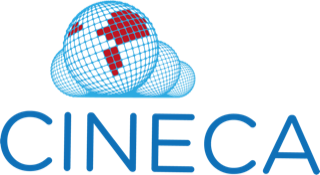Catalogue of ELSI issues - D7.1
Authors: Éloïse Gennet & Melanie Goisauf
Keywords: ELSI, data sharing, secondary data, FAIR, data processing, consent, international data sharing
The aim of this deliverable is to give an overview of all the different ethical, legal and societal issues that the CINECA project might be confronted with: public health ethics, personal data protection, ethics of data sharing, protection of consent and vulnerability as well as compliance issues between Canada, Africa and Europe in pursuit of the project goal to enable the exchange of population scale health data across international borders to allow and promote the reuse of data for health research. The rationale for sharing and reusing data in public health research is deeply rooted in the promotion of a fair distribution of research risks and benefits, and it has become an essential and powerful tool for public health research. D7.1 has been elaborated in a bottom up approach, starting from the practical legal and ethical issues encountered notably through Work Package 9 (EC Ethics Requirements). As a basis for the lawful and ethical guarantees for data sharing and reuse within CINECA, all cohorts and consortiums have provided for the copies of their own ethics approvals (Deliverable 9.4), and they are all independently responsible for ensuring researchers accessing data have their own research ethics approval. This deliverable will serve as a starting point for the future deliverable 7.2 which will be aimed at identifying and discussing the gaps in the different legislative or regulatory frameworks and corresponding literature.
As a consequence, this deliverable will be divided into two main parts, the first one focusing on the collective perspectives of international data sharing in public health research (I), the second one examining the opposite perspective of the protection of individual data subjects when their personal data is used for secondary processing (II). Afterwards, future developments will be briefly mentioned (III) before highlighting some of the difficulties encountered in Work Package 9 (IV) and finally listing the references (V).
Read More
Data Management Plan, v.1 - D7.4
The overarching purpose of CINECA is to achieve federated human data interoperability between 10 existing cohorts from Canada, Europe and Africa which represent >1.4 million individuals. This will enable population scale genomic and biomolecular data access across international borders, accelerating research and improving the health of individuals resident across continents. This project will not generate novel data from human data, rather it relies on integrating existing resources which hold or store data to deliver new knowledge and innovation. All data access is determined by the existing data access committees (DACs) and the respective data processes for each dataset. The informed consent and ethics approvals for CINECA cohorts were documented in D9.3 and D9.4, and will be respected by this data management plan, which will be an integral part of the consortium’s Governance Framework. Given the international nature of this project, the data management plan is a component of Work Package 7 - Ethical and legal governance framework for transnational data-sharing. We note that all partners in the project have relevant national and/or international experience in acquiring, storing, analysing and sharing high complexity datasets and in the implementation of the FAIR principles for these resources.
The Data Management Plan (DMP) was developed based on the core requirements for DMPs as described by The Science Europe Practical Guide to the International Alignment of Research Data Management (https://www.scienceeurope.org). The DMP is a living document, expected to be updated during the lifetime of the project.
https://doi.org/10.5281/zenodo.3909577
Read More
Training Programme, Deliverable D6.2a - D6.2
Deliverable D6.2a
Training Programme - M12
Authors: Nicola Mulder (UCT), Mamana Mbiyavanga (UCT), Saskia Hiltemann (EMC), Vera Matser (EMBL-EBI)
In this deliverable document, we report on the activities in task 6.2a - Training Programme and describe the CINECA training activities in the first 12 months of the project.
In the first phase of the CINECA project, many of the training efforts are focused on internal learning opportunities and knowledge exchanges. There are many interdependencies between the different CINECA work packages, so to this end we have set up a staff exchange program. For training interventions targeted at a broader audience, we have set up a webinar series, providing online learning interventions. Feedback from these webinars is collected and is used to further increase the utility of the webinars going forward. We have disseminated a survey to identify the training needs of CINECA’s stakeholder community. Additionally, we ran our first stakeholder engagement session at the International Hundred Thousand Cohorts Consortium (IHCC) Meeting in Reykjavik, Iceland in April 2019. During this session, we gathered feedback on the challenges of managing cohorts and cohort data harmonisation. More extensive face-to-face workshops and training events are being planned for 2020.
https://doi.org/10.5281/zenodo.3952621
Read More
CINECA Outreach and dissemination plan D6.1
In this deliverable document, we report on the activities in task 6.1 – Stakeholder analysis, with the outreach and dissemination plan, as well as the training plan presented in this report, we have completed this task. We have used a combination of surveys and face-to-face meetings to verify and extend or identify key stakeholder groups, understand their interest in the project, and identify bottlenecks that can be addressed by outreach and training. Outreach activities will be accomplished by task 6.2 and training by task 6.3.
https://doi.org/10.5281/zenodo.7733981
Read More



